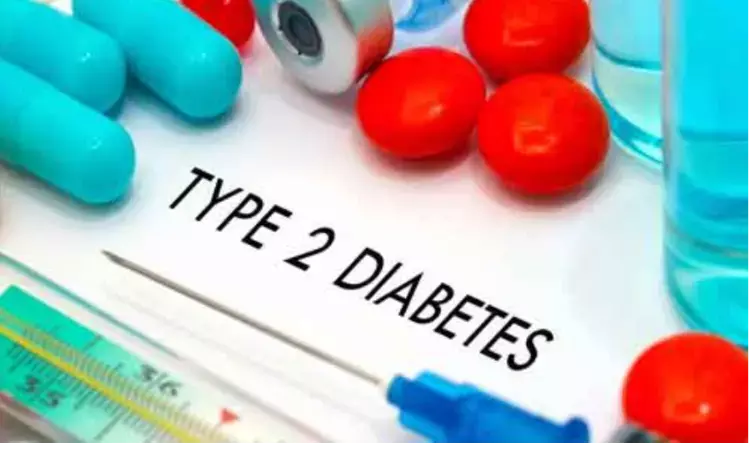- Home
- Medical news & Guidelines
- Anesthesiology
- Cardiology and CTVS
- Critical Care
- Dentistry
- Dermatology
- Diabetes and Endocrinology
- ENT
- Gastroenterology
- Medicine
- Nephrology
- Neurology
- Obstretics-Gynaecology
- Oncology
- Ophthalmology
- Orthopaedics
- Pediatrics-Neonatology
- Psychiatry
- Pulmonology
- Radiology
- Surgery
- Urology
- Laboratory Medicine
- Diet
- Nursing
- Paramedical
- Physiotherapy
- Health news
- Fact Check
- Bone Health Fact Check
- Brain Health Fact Check
- Cancer Related Fact Check
- Child Care Fact Check
- Dental and oral health fact check
- Diabetes and metabolic health fact check
- Diet and Nutrition Fact Check
- Eye and ENT Care Fact Check
- Fitness fact check
- Gut health fact check
- Heart health fact check
- Kidney health fact check
- Medical education fact check
- Men's health fact check
- Respiratory fact check
- Skin and hair care fact check
- Vaccine and Immunization fact check
- Women's health fact check
- AYUSH
- State News
- Andaman and Nicobar Islands
- Andhra Pradesh
- Arunachal Pradesh
- Assam
- Bihar
- Chandigarh
- Chattisgarh
- Dadra and Nagar Haveli
- Daman and Diu
- Delhi
- Goa
- Gujarat
- Haryana
- Himachal Pradesh
- Jammu & Kashmir
- Jharkhand
- Karnataka
- Kerala
- Ladakh
- Lakshadweep
- Madhya Pradesh
- Maharashtra
- Manipur
- Meghalaya
- Mizoram
- Nagaland
- Odisha
- Puducherry
- Punjab
- Rajasthan
- Sikkim
- Tamil Nadu
- Telangana
- Tripura
- Uttar Pradesh
- Uttrakhand
- West Bengal
- Medical Education
- Industry
Low Carbohydrate high-protein diet benefits patients of diabetes; claims study

Carbohydrate -reduced high-protein diet reduced glucose excursions and improved beta-cell function, including proinsulin processing, and increased subjective satiety in patients with type 2 diabetes, suggests a recent study.Findings have been published in American Journal of Physiology-Endocrinology and Metabolism.
T2D is a progressive disease with worsening of glycemic control over time, in most patients explained by a decline in beta-cell function. The recent dietary consensus report from the American Diabetes Association (ADA) suggests that there is no ideal percentage of calories from carbohydrate, protein, and fat to be recommended for all people with or at risk of diabetes. Consistently, meta-analyses have demonstrated beneficial short-term effect of carbohydrate restriction on body weight and regulation of HbA1c, but have failed to reveal beneficial long-term effects beyond 12 months of dietary treatment.
With this background, researchers aimed to investigate 6 weeks of carbohydrate-restriction on postprandial glucose metabolism, pancreatic alpha- and beta-cell function, gut hormone secretion, and satiety in T2D patients.
The study comprised of a cross-over design, 28 T2D patients (mean: HbA1c 60 mmol/mol) were randomized to 6 weeks of carbohydrate-reduced high-protein (CRHP) diet and 6 weeks of conventional diabetes (CD) diet (energy-percentage carbohydrate/protein/fat: 30/30/40 versus 50/17/33). Twenty-four-hour continuous glucose monitoring (CGM) and mixed meal tests were undertaken and fasting intact 40 proinsulin (IP), split proinsulin concentrations (SP), and postprandial insulin secretion rates (ISR), insulinogenic index (IGI), beta-cell sensitivity to glucose (Bup), glucagon and gut hormones were measured. Gastric emptying was evaluated by postprandial paracetamol concentrations and satiety by visual analogue scale ratings.
On data analysis the following facts emerged.
- A CRHP diet reduced: postprandial glucose area under curve (net AUC) by 60% 24h glucose by 13% (p<0.001), fasting IP and SP concentrations (both absolute and relative to C-peptide, p<0.05), and postprandial ISR (24%, p=0.015), while IGI and Bup improved by 31% and 45% (both p<0.001).
- The CRHP diet increased postprandial glucagon net AUC by 235% (p<0.001), subjective satiety by 18%(p=0.03), delayed gastric emptying by 15 minutes (p<0.001), decreased gastric inhibitory polypeptide net AUC by 29% (p<0.001), but had no significant effect on glucagon-like-peptide-1, total peptide YY and cholecystokinin responses.
For the full article, follow the link: 10.1152/ajpendo.00165.2020
Primary source: American Journal of Physiology-Endocrinology and Metabolism
Dr Satabdi Saha (BDS, MDS) is a practicing pediatric dentist with a keen interest in new medical researches and updates. She has completed her BDS from North Bengal Dental College ,Darjeeling. Then she went on to secure an ALL INDIA NEET PG rank and completed her MDS from the first dental college in the country – Dr R. Ahmed Dental College and Hospital. She is currently attached to The Marwari Relief Society Hospital as a consultant along with private practice of 2 years. She has published scientific papers in national and international journals. Her strong passion of sharing knowledge with the medical fraternity has motivated her to be a part of Medical Dialogues.
Dr Kamal Kant Kohli-MBBS, DTCD- a chest specialist with more than 30 years of practice and a flair for writing clinical articles, Dr Kamal Kant Kohli joined Medical Dialogues as a Chief Editor of Medical News. Besides writing articles, as an editor, he proofreads and verifies all the medical content published on Medical Dialogues including those coming from journals, studies,medical conferences,guidelines etc. Email: drkohli@medicaldialogues.in. Contact no. 011-43720751


